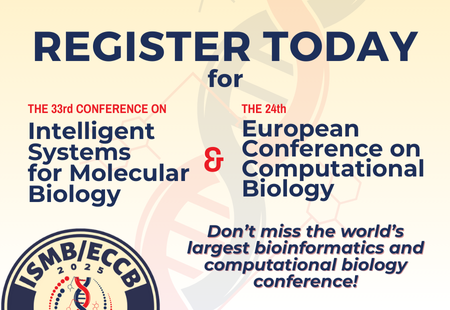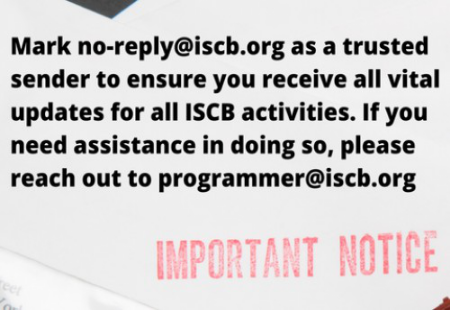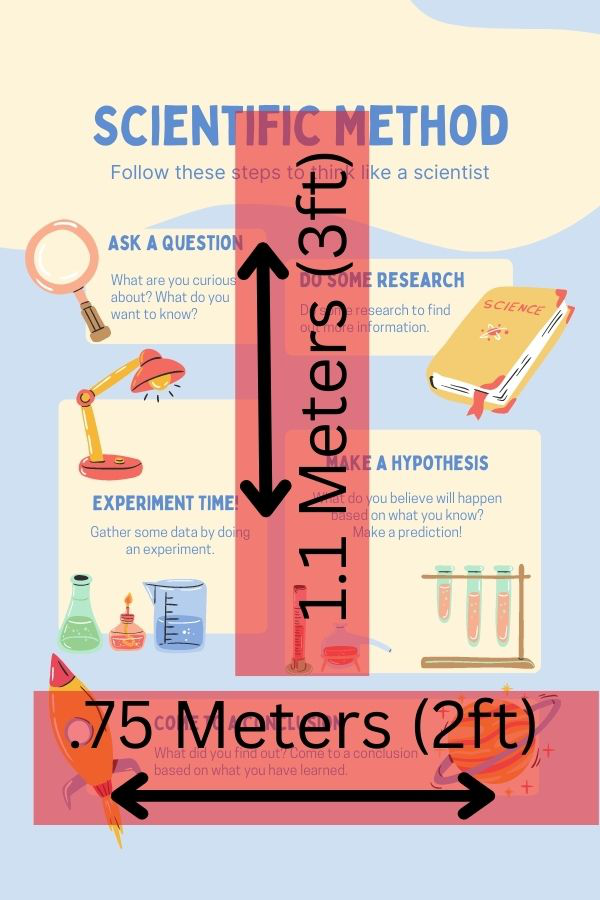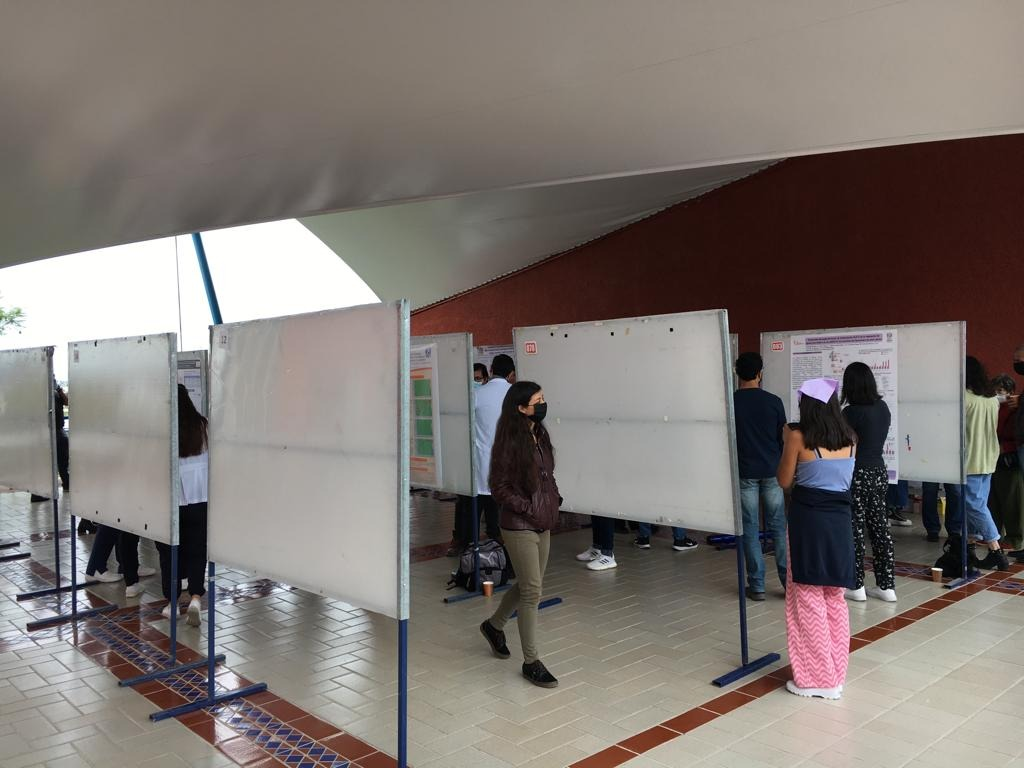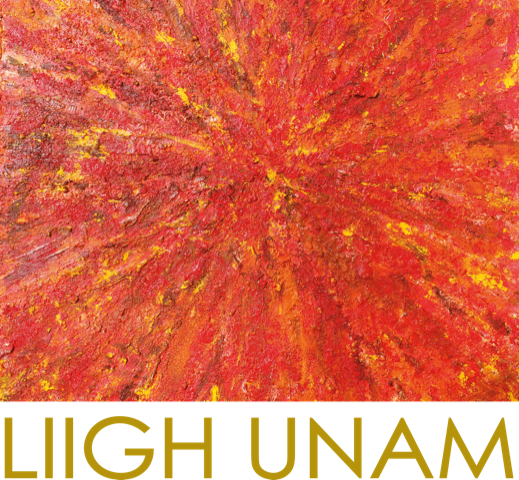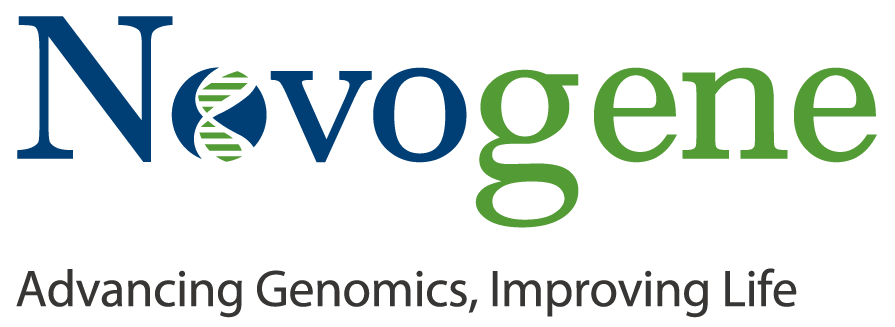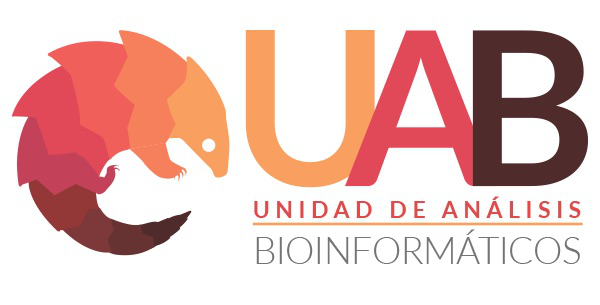ISCB-LA SoIBio BioNetMX 2022 is pleased to offer the folllowing workshops and tutorials as part of the conference. Additonal fees apply to participate in the workshops and tutorials. Attendees are required to bring their own computers to the trainings.
Onsite training will be conducted on Sunday, November 6 at UNAM-Campus Juriquilla.
Virtual training will be conducted on Monday, November 7 via the conference virtual platform.
Conference registration required to participate in the workshops and tutorials!
In-person Workshops & Tutorials: Computational Challenges in Phospho-Proteomics and Systems Biology of Cellular Signaling | Analysis of biological and biomedical transcriptomic data using Artificial Intelligence (AI) and Machine Learning methods (ML) methods with R | Contributing to pandemic surveillance with the global community, using the European Nucleotide Archive | Introduction to Reproducible Systems Computational Modeling Workflows Enabled by COMBINE Standards | Exploring Genes and Genomes Using Ensembl | Comparative Genomics: Pangenomics and genome mining
Virtual Workshops & Tutorials: GVViZ & PAS: Integrated bioinformatics and mobile applications for gene-disease data annotation, expression analysis, and visualization for translational research | Metagenomics | Construction of bacterial pan-genomes | Second Latin-American Bioinformatics Education Forum
IN-PERSON WORKSHOPS AND TUTORIALS
SUNDAY, NOVEMBER 6
Computational Challenges in Phospho-Proteomics and Systems Biology of Cellular Signaling
Sunday, Nov. 6
9:00 – 13:00
This tutorial provides an overview of phospho-proteomics data analysis, presents current limitations and computational challenges (as well as opportunities for computational researchers), and introduces available resources and algorithms that aim to extract meaningful insights from phosphoproteomics data. The tutorial aims to bring more computational biologists to this important area of research in systems biology to tackle existing challenges and develop efficient, reliable, and reproducible platforms and algorithms for phosphoproteomics analysis.
Intended Audience & Level: Computational biologists who are familiar with other omic datasets and would like to learn about proteomics to broaden the scope of their algorithms, as well as life scientists who use phospho-proteomics and would like to apply systems approaches to better utilize their data
Organizer(s):
Marzieh Ayati (Department of Computer Science, University of Texas Rio Grande Valley, Texas, USA)
Filipa Blasco Tavares Pereira Lopes (Systems Biology and Bioinformatics, Case Western Reserve University, Cleveland, Ohio, USA)
Serhan Yilmaz (Department of Computer Science, Case Western Reserve University, Cleveland, Ohio, USA)
Mehmet Koyuturk (Department of Computer Science, Case Western Reserve University, Cleveland, Ohio, USA)
Mark Chance (Departments of Nutrition, Genetics and Genome Sciences, Case Western Reserve University, Ohio, USA)
Daniela Schlatzer ( Proteomics and Small Molecule Mass Spectrometry Core, Case Western Reserve University, Ohio, USA)
Presentation Modality: In-person
Length of Workshop: Half-day
- top -
Analysis of biological and biomedical transcriptomic data using Artificial Intelligence (AI) and Machine Learning methods (ML) methods with R
Sunday, Nov. 6
9:00 – 18:00
This is a Workshop on Bioinformatics composed of 4 Advanced Practical Sessions to learn how to use and apply a series of bioinformatic algorithms and tools developed in R or in Bioconductor. The Workshop entitled: "Analysis of biological and biomedical transcriptomic data using Artificial Intelligence (AI) and Machine Learning methods (ML) methods with R"; will be divided in 4 sessions addressing complementary topics.
Intended Audience & Level: The audience for this workshop will be any PhD student or young researcher with a modicum of bioinformatics experience, who is interested in learning how to use various complementary R-based protocols and pipelines applied to the analysis of transcriptomic data generated with genome-wide expression techniques (mainly RNA-seq and scRNA-seq).
Organizer(s):
(Session 1.) Javier De Las Rivas, CSIC-USAL-IBSAL, Spain.
(Session 2.) Maribel Hernandez Rosales, CINVESTAV, México.
(Session 3.) Enrique De Las Rosa, CSIC-USAL-IBSAL, Spain.
(Session 4.) Flavio Spetale, CIFASIS- CONICET-UNR, Argentina.
(This is the initial proposal. Some Trainers may change depending on the travel situation and availability and we may include a second Trainer in each Session to better assist attendees).
Presentation Modality: In-person
Length of Workshop: Full Day
- top -
Contributing to pandemic surveillance with the global community, using the European Nucleotide Archive
Sunday, Nov. 6
9:00 – 18:00
The CABANA project has created a network of institutions and trainers who contributed to the surveillance and policy response to Covid in the region. CABANAnet would like to share its learning during the pandemic and provide capacity to bioinformaticians in data sharing using ENA as one possible tool, and due recognition for publications. This workshop will cover in-depth navigation of ENA - searching and building queries to retrieve metadata from ENA. Followed by downloading data from the ENA. Ending with visualising data showcasing the SARS-CoV-2 variant browser - CoVEO.
Intended Audience & Level: PhD level students and above who are bioinformatics users as part of their studies or current employment. Good users of Bioinformatic tools at MSc level will be considered.
Organizer(s):
The workshop will be hosted by The European Molecular Biology Laboratory -European Bioinformatics Institute and the CABANA Network. The team from EMBL-EBI will be a combination from the following: Drs Cochrane, O Cathail, Rahman, Waheed, and Willis (https://www.ebi.ac.uk/about/teams/data-coordination-and-archiving/members/). The CABANA network will provide trainers from its established network. Emphasis on" Latin American trainers first", is the priority. We expect representation from Cinvestav Mexico, UniAndes Colombia and Vale Institute Brazil.
Presentation Modality: In-person
Length of Workshop: Full day
- top -
Introduction to Reproducible Systems Computational Modeling Workflows Enabled by COMBINE Standards
Sunday, Nov 6
9:00 – 13:00
The 'COmputational Modeling in BIology' NEtwork (COMBINE) coordinates the development of standards for biological modeling. These standards serve as the basis to simplify the development of kinetic, logical, whole cell, spatial, multi-scale models as well as other formalisms. Computational models help our understanding and can guide precision medicine efforts. Unfortunately, many simulation results are not reproducible, and few models are annotated. Participants will be introduced to 1) a workflow for modeling, visualization, annotation, and analysis that the interoperable COMBINE standards enable; and 2) software tools connected via community-developed standards.
Intended Audience & Level: Experimentalists and modelers with basic experience in modeling and simulation of biological networks and everybody who would like to learn more about modeling standards: SBML, SBGN, etc. and tools: COPASI (modeling), Newt (visualization), BioModels (model exchange), etc.
Organizer(s):
Norma Citlalcue Pérez Rosas: Postdoctoral Research Associate, Purdue University and EMBRIO Institute (Emergent Mechanisms in Biology of Robustness Integration and Organization Institute). Former Professor at UPIEM-IPN, Mexico
Augustin Luna: Research Associate, Harvard Medical School. Contributor to the SBGN and BioPAX COMBINE standards
Presentation Modality: In-person
Length of Workshop: Half-day
Capacity: 30
- top -
Exploring Genes and Genomes Using Ensembl
Sunday, Nov 6
9:00 – 18:00
The Ensembl genome browser provides visualisation and analysis of integrated genomic data, including genes, variants, comparative genomics and gene regulation, for over 300 species. This workshop will provide participants with the opportunity to learn about the wide range of data available through the Ensembl genome browser, and gain hands-on experience in navigating the Ensembl website to retrieve and interpret data.
Intended Audience & Level: This is an introductory workshop that is aimed at wet-lab scientists and bioinformaticians who are new to using Ensembl or have not yet discovered the power and depth of this resource.
Organizer(s):
Benjamin Moore (EMBL-EBI)
Louisse Mirabueno (EMBL-EBI)
Aleena Mushtaq (EMBL-EBI)
Presentation Modality: In-person
Length of Workshop: Full day
Capacity: 30
- top -
Comparative Genomics: Pangenomics and genome mining
Sunday, Nov 6
14:00 – 18:00
Pangenomics and genome mining are booming areas inside comparative genomics and this time they will be togheter in a full practical workshop. We will explore the original Streptococcus data where the Pangenomic idea was conceived. Then we will relate parts of the pangenome with natural products biosynthesis. Once we identify the biosynthetic gene clusters we will learn to classify and visualize cluster families.
Intended Audience & Level: Scientists with basic knowledge of bash and biological concepts like DNA sequencing, evolution, and diversity. From Undergrads in Life Sciences and Computer Sciences to Graduate students, Post-docs, Technicians, and Investigators.
Organizer(s):
Organizer: PhD Nelly Sélem Mojica: Principal Investigator at Centro de Ciencias Matemáticas UNAM.
Instructor: PhD Jesús Abraham Avelar Rivas: teacher at ENES León UNAM and posdoctoral researcher at CINVESTAV Irapuato.
Presentation Modality: In-person
Length of Workshop: Half-day
- top -
VIRTUAL WORKSHOPS AND TUTORIALS
MONDAY, NOVEMBER 7
GVViZ & PAS: Integrated bioinformatics and mobile applications for gene-disease data annotation, expression analysis, and visualization for translational research.
Monday, Nov 7
9:00 – 13:00
GVViZ & PAS: Integrated bioinformatics and mobile applications for gene-disease data annotation, expression analysis, and visualization for translational research.
We propose half-day tentative schedule, which includes only couple coffee breaks. Total three sessions will be offered:
- In the first session, both scientific applications (GVViZ and PAS) will be introduced along with relevant scientific background.
- In the second session, attendees will be guided to how to download and configure GVViZ and PAS in their computing and smart phones devices. We will train them to use both bioinformatics applications and provide access to the annotated and training datasets to perform gene-disease data annotation, expression analysis, and dynamic heat-map visualization.
- In the third session, we will guide users to how to access and customize the source code of GVViZ for their personalized analysis, and future research and developments.
Tutorial handouts and learning material will be provided and made available online for the attendees. Handouts will include, step-by-step user guidelines (text, image, video), and information about source code, software configuration and settings, and relational database modelling.
Intended Audience & Level: This tutorial will be aimed to the audience of any level (e.g., beginner, experience, advanced knowledge), mainly interested in learning about automated and integrated gene-disease data annotation, expression analysis, and visualization for translational research. We will expect and equally appreciate presence of computational and non-computational scientists, bench scientists, bioinformaticians, biologist, geneticists, clinicians, and most importantly graduate and undergraduate students of life and medical sciences.
Organizer(s):
Zeeshan Ahmed. Rutgers University.
Presentation Modality: Virtual
Length of Workshop: Half-day
- top -
Metagenomics
Monday, Nov 7
14:00 – 18:00
Metagenomic analyses aim to explore the genomic diversity of communities in specific habitats by processing their DNA-sequencing data with specialized bioinformatics tools, which often require previous coding experience. Furthermore, beginners can struggle to build a pipeline that goes from raw data to valuable biological insights. We teach a Metagenomics curriculum on The Carpentries’ incubator allowing learners to use the software needed for completing metagenomics analyses, without software and hardware complications.
Intended Audience & Level: Scientists with basic knowledge of bash and R, and biological concepts like DNA sequencing, microbiome, and diversity. From Undergrads in Life Sciences and Computer Sciences to Graduate students, Post-docs, Technicians, and Investigators.
Organizer(s):
Organizer: PhD Nelly Sélem Mojica: Principal Investigator at Centro de Ciencias Matemáticas UNAM.
Instructor: MSc Claudia Zirión Martínez: Invited teacher at Centro de Ciencias Matemáticas UNAM, and incoming research assistant at Tecnológico de Monterrey.
Presentation Modality: Virtual
Length of Workshop: Half-day
- top -
Construction of bacterial pan-genomes
Monday, Nov 7
9:00 – 13:00
In this workshop, participants will learn how to select and download genomes from databases for comparative analysis. They will gain experience for building pan-genomes by using an external server. The analysis will be carried out with the use of Vibrio cholerae genomes, and through two computational strategies: roary and UBCG. Finally, the participants will learn to visualize their results using MEGAx.
Intended Audience & Level: Life sciences professionals interested in bacterial genomics. Principiants
Organizer(s):
MSc. Karla Ruiz - Winter Genomics - Organizer
Dra. Violeta Larios - Winter Genomics - Presenter
M. en C. Kenya Contreras - Winter Genomics - Presenter
M. en C. Nayeli Luis - Winter Genomics - Presenter
Presentation Modality: Virtual
Length of Workshop: Half-day
- top -
Second Latin-American Bioinformatics Education Forum
Monday, Nov 7
14:00 – 18:00
The Second Latin-American Bioinformatics Education Forum is a working meeting for representatives and interested parties related to academic programs on bioinformatics, genomic sciences, computational biology and similar disciplines. It aims on discussing different topics of interest linked to strengthening bioinformatics educational programs, either undergraduate, masters, doctorate, or specialisations; promote the inclusion of bioinformatics curricula in life sciences; and tackle current challenges in the region such as common infrastructures and decentralisation of education/research.
Intended Audience & Level: Representatives and interested parties related to academic programs on bioinformatics, genomic sciences, computational biology and similar disciplines
Organizer(s):
Vinicius Maracaja-Coutinho, Universidad de Chile;
Sebastian Ayala-Ruano, Maastricht University;
Yesid Cuesta;
Patricia Carvajal-López, EMBL-EBI;
Presentation Modality: Virtual
Length of Workshop: Half-day
- top -
ISCB-LA SoIBio BioNetMX 2022 Health and Safety Protocols
We encourage you to monitor this page to stay abreast of the latest updates on health and safety protocols for ISCB-LA SoIBio BioNetMx 2022. The conference organizer reserve the right to alter these protocols as appropriate at any time as its leadership continues to assess the situation.
The safety of conference participants is the conference organizers’ top priority, and we believe the most effective way to ensure the safety of all attendees is for them to be vaccinated and boosted if eligible and able against COVID-19. Please note that proof of vaccination will be required for all in-person conference participants prior to traveling to Querétaro, Mexico.
Participants should be aware that, while the conference organizers will make every effort to reduce the risk of COVID-19 transmission on site, it is possible that attendees will come in contact with people in airports, hotels, and around the conference facility who could potentially carry the virus, which is why attendees are required to be fully vaccinated for their own safety, as well as the safety of others.
Entry into Mexico (MX) may require measures beyond those that are stated by the conference to meet safe protocols to gain access to the country. As it’s required to abide by MX entry requirements, please be sure to consult the MX COVID-19 Traveler Information page of Mexico.
The conference organizers are also required to adhere to all state and local regulations and restrictions as imposed by local governments. You are encouraged to review the local regulations and restrictions that are in place in Querétaro, Querétaro, México (https://www.queretaro.gob.mx/covid19/).
Participants understand that it is their responsibility to review and ensure compliance with any stated country guidelines both for coming into Mexico and departing Mexico to return to their country of origin. Costs associated with travel are the responsibility of the participant.
For the purposes of right of entry to ISCB-LA SoIBio BioNetMX, a person is considered fully vaccinated:
- Two weeks after receiving the second dose in a two-dose series, or
- Two weeks after receiving a single-dose vaccine, such as the Janssen (Johnson & Johnson) vaccine; or
- Full course of immunization with any vaccine that has been authorized by the participant’s country of origin
- AND is boosted with a booster shot if person is eligible and able
For those unable to travel or meet the vaccination requirement, the conference offers virtual meeting registration options – https://www.iscb.org/la2022-register.
How will vaccinations be verified?
Prior to arriving on site, participants electing to attend in-person will be asked to upload proof of vaccination status during registration. ISCB will accept any Country, Province, or State proof of vaccination image, which is to include COVID vaccine certificate QR codes or a “CLEAR health pass”.
In addition to all attendees, all ISCB staff working at the meeting will be fully vaccinated; however, ISCB is not legally able to require conference facilities staff to be vaccinated. The conference venue is within the National Autonomous University of Mexico (UNAM) that has enforced vaccination among their personnel, this means a high percentage of the personnel is fully vaccinated.
Will the conference require proof of a negative COVID test upon arrival?
The conference will not require proof of a negative COVID test prior to arrival onsite, however, we strongly encourage all in-person participants to test for infection prior to departing for the conference. As testing times vary world-wide, our suggested test period is no more than 48 hours from the departure of your home.
Entry requirements are updated often. Be sure to check the entry requirements well in advance of your departure to the conference and return to your home country.
References: MX COVID-19 Traveler Information page of Mexico
On-Site Safety Measures
Public health guidance on preventing the transmission of COVID-19 continues to evolve. The conference will base its on-site protocols on the latest guidance from the US CDC/WHO in addition to local regulations in Querétaro, Querétaro, México.
We would encourage attendees to bring their own test kits and test prior to attending the meeting and at regular frequency during the meeting to reduce the risk of transmitting COVID-19. The conference will have a limited number of tests on hand thanks to a generous sponsorship by Akamai. After the test supply is depleted, we will do our best to provide information on where testing can be conducted.
Air Circulation
Mexico has no air filtering policy. The Auditorium of Centro Academico Cultura (CAC-UNAM), is equipped with an air conditioning system installation with continuous maintenance of filters to ensure air security within the venue.
Physical Distancing
Meeting rooms will be set up to accommodate those attendees who prefer more personal space as well as those who prefer to sit closer together, even if physical distancing is not legally mandated at the time of the meeting.
Sanitization
Even though the science now shows that COVID-19 transmission is less likely to occur from touching surfaces touched by multiple persons (i.e., lecterns), staff will clean these regularly to promote healthy sanitation overall. The conference facility will also have sanitization stations throughout the venue.
Protective Masks
The wearing of protective masks is required of all attendees, conference staff, and conference facility workers, regardless of whether or not it is required by law at the time of the meeting. Participants are welcome to bring their own mask of choice. N95 and KN95 (FFP2) masks are strongly preferred. Surgical masks are accepted but known to be less effective. Cloth masks, gaiters, bandanas, and masks with exhalation valves will not be accepted. Masks will be provided onsite for a donation (suggested $1) should you need one.
Masks must be worn properly (covering both mouth and nose) at all times indoors, except as noted below. The indoor mask requirement applies to all spaces where in-person conference events are being held. Masks are not required outdoors.
Masks may be removed briefly in the following situations:
- When actively eating or drinking*, eating and drinking are prohibited within the session rooms
- When speaking at the lectern (as the distance between the speaker and audience is greater than 6 feet). Speakers should put their masks back on when not actively presenting (i.e., sitting at the head table on the dais).*
- When being photographed or interviewed on camera by registered media or ISCB staff.*
Participants who are not properly masked will be refused admittance to sessions and events and may have their badges revoked.
Symptom Development While Onsite
On-site participants must agree that if they become symptomatic they will immediately get tested for COVID-19 and cease participation in the meeting and all related events. Individuals who test positive will not be permitted to continue attending the meeting in person until a negative test is produced and must follow Gobierno de Mexico guidance and regulations - https://www.imss.gob.mx/prensa/archivo/202201/C001.
COVID-19 Testing
The conference will not be providing a testing facility onsite at the conference location, UNAM-Campus Juriquilla. If you are onsite and experiencing symptoms, please contact ISCB (This email address is being protected from spambots. You need JavaScript enabled to view it.); we will assist you in any way possible to get a test or direct you to the nearest testing facility.
If you wish to be tested by a laboratory or clinic, or If your travels home require a documented laboratory result, here is a list of local facilities:
For travel requirements, you may also consider purchasing Abbott BinaxNOW™ COVID-19 Ag Card Home Test through eMed. Most airlines will accept this tele-health verified self-administered test. Please be sure to check with your airline prior to purchasing. Abbott BinaxNOW™ COVID-19 Ag Card Home Test can be found at https://www.emed.com/airline-travel and other retail providers.
What happens if I test positive onsite?
Participants who test positive for COVID-19 onsite, must follow Gobierno de Mexico guidance and regulations - https://www.imss.gob.mx/prensa/archivo/202201/C001. They will not be allowed to attend sessions in person until a negative test can be produced, although they will still have access to the virtual platform. Staff on site will be available to provide assistance to individuals who test positive via a Quarantine Support Concierge. Support will include:
- Daily wellness phone calls to check on the individual.
- Assistance with modifying hotel arrangements to extend the check-out date to the end of the quarantine period. The cost of the additional quarantine period will be the responsibility of the participant. ISCB has worked with the hotels to provide reduced hotel rates for quarantine purposes.
- Coordination with the hotel for the contactless delivery of water, food, beverages, and housekeeping supplies, since housekeeping service will cease (food costs will be the responsibility of the participant)
- Coordination of contactless delivery of other items needed from non-hotel sources (i.e., pharmacy or grocery stores; at cost to the participant)
Quarantine Support Concierge services will be available November 3, 2022 through November 7, 2022.
Information on individuals who test positive, including the name of the individual testing positive and the session in which the individual participated, will be provided to staff overseeing the COVID-19 testing and response efforts. This will enable staff to follow up with these individuals to provide information on policies for isolating while on site, facilitate safe and comfortable quarantine arrangements, and provide information on local health care options as needed. While aggregate information about the number of positive cases will be made available to other attendees, the identity of individuals who test positive will be kept confidential.
Unfortunately, a formal contact tracing system is not available. The conference organizers will, however, make aggregate data available to attendees via the conference app about the number of positive cases reported at the meeting on a daily basis so they can make informed decisions about their participation. The identity of individuals who test positive will be kept strictly confidential.
COVAC GLOBAL
While the conference is taking numerous precautions to alleviate the risk to meeting attendees, the possibility of testing positive during the meeting, and therefore needing to quarantine in place may factor into the decision to attend the conference. To help address these concerns, we recommend COVAC GLOBAL, a leading provider of medical evacuation services, to offer in-person attendees the option to purchase its COVID-19 Evacuation and Repatriation service. For those who purchase this service in advance, COVAC GLOBAL will arrange for medical transport – via private jet – back to your home to complete your quarantine at no additional expense, should you be diagnosed with COVID-19 while at the conference.
International Attendees
International attendees should always check current travel restrictions to Mexico on the MX COVID-19 Traveler Information page before planning your travel, to make sure you will be able to enter Mexico. In addition, please monitor local regulations at the origin destination to ensure that you will be able to return from Mexico.
Conference Refund Policy
We understand the continued volatility of the ongoing pandemic. In the event a registered participant cannot travel due to a positive test result prior to departing for the conference, the conference organizers will partially refund the participants registration fee to still allow the participant access to the virtual platform. Participants who are still unable to participate in the conference virtually may request a full refund. Full refund requests must be made prior to the start of the conference and be accompanied by positive COVID-19 testing documentation. The conference will not accept refund requests after 9:00 AM CDT, November 3, 2022.
Conference COVID Waiver
Upon registration to the conference, the conference will require all in-person participants to sign the following waiver:
I understand that travel and gathering involves risk of sickness, including sickness from COVID-19. I (and on behalf of my guest(s)) waive and release ISCB, SoIBio, BioNetMX and its sponsors and exhibitors, and their employees and agents, from and against claims, liabilities and expenses arising from injury, sickness or death from contraction or spread of COVID-19 or other communicable disease due to travel to or attendance at ISCB-LA SoIBio BioNetMX 2022.
I will take necessary precautions while at the event including, but not limited to, engaging in appropriate social distancing, wearing a mask when requested and/or required, minimize face touching, frequently washing hands and avoiding risky environments such as overcrowded bars or restaurants. I agree to not attend any conference related event if I feel ill or had recent exposure to a COVID-19 case. This waiver and release is binding on me and my heirs and successors.

